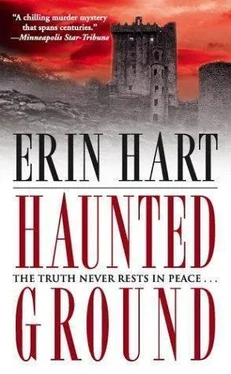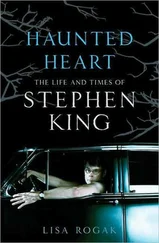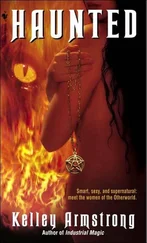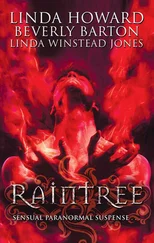Not now, she mouthed in reply, but Una could see that he didn’t plan to heed her advice.
Upstairs in their room, she tore through the bedtime story, prompting Aoife to say, “Mammy, you’re going too fast.”
“Sorry, love,” Una said, slowing her pace, but, as she did, straining to hear what might be passing between her brothers downstairs. The fact that she could hear nothing made her even more tense.
“That’s all for tonight,” she said, closing the book at the end of the chapter and giving Aoife a quick kiss. “Sleep well, a chroi.”
Una knew the moment she opened the door that the silence below did not bode well. Brendan’s voice was quiet, but there was fury in it.
“America, is it? I might have known. Can’t wait to get away from us, can you? And not just down the road, you have to go halfway round the world, and it’s still not far enough. And how are you going to get enough money to go live in America?”
“I’ve saved a good bit. And I thought I’d sell off my share of the farm.” Brendan didn’t respond, so Fintan continued: “I went to the solicitor. He told me that Una and I have equal shares in the farm, same as yourself. How long did you think you could keep that from us, Brendan? But don’t worry, I’ll give you a fair price.”
Brendan stood, trembling, with the handle of the sickle gripped tightly in his right hand.
“You fucking whelp,” he said, on the last word bringing the blade of the sickle down on the table, where it stuck fast. Fintan scrambled backward, upending his chair, his face openmouthed in shock at what his words had unleashed. Brendan’s rage dissolved into bewilderment, then further into remorse. He sagged to his knees, and rested his head against the edge of the table.
“Fintan, you’d better leave,” Una said. “Just for a while.”
“I’m not leaving you here—”
“Fintan,” she said again, sharply. “Will you get out? We’ll be all right.”
Fintan climbed to his feet, and left hurriedly by the front door. Una stood where she was for a moment, then walked deliberately to the table, where she wrested the sickle from its place. She felt its dead weight in her hand as she opened the back door, walked to the shed, and hung it up among the other tools neatly arranged on hooks above her head.
When she returned to the kitchen, Una saw the door to the front hall closing, and heard Brendan’s footsteps treading the length of the hallway to his room. Perhaps it was the relief of not having to speak to him at this moment; she put her hands to her face and drew in a long, gasping sob.
“Mammy?” came a small voice from above. Aoife stood at the top of the staircase in her nightdress. “Mammy, what’s happening? I’m afraid.” Una sprinted up the short flight of steps and knelt to hold Aoife tight.
“It’s all right, my love,” she said, smoothing her daughter’s hair. “The boys had a bit of a row, but it’s over now. It’s all over.”
Tiny beads of perspiration were beginning to form on Nora’s forehead as she walked on the treadmill. She had sublet this flat from a Trinity colleague off in America on a visiting professorship. Although she loved its location on the Grand Canal, and the large windows that looked out over the southwest sector of the city, she had never warmed to its spare, modern space. She did like the treadmill, though; walking put her in a meditative state. She had been at it nearly forty minutes now, relaxing into the steady rhythm, feeling the blood coursing through her muscles, focusing her vision on a place far outside the large plate-glass window. Dublin was still an astonishingly residential metropolis, and she could see far beyond the canal onto the roofs of Harold’s Cross and Crumlin, watching the blinking lights appear in the gathering dusk over the city. It was this time of day, and particularly the memory of the setting sun over the Mississippi River bluffs around Saint Paul, that made her homesick for her own home and family. Her parents would both be working right now. She imagined her father checking some experiment in his research lab at the university medical school, her mother listening to the heartbeats of East African women and children, who made up the bulk of her clientele at the community clinic. She hadn’t spoken to her parents in more than a week; she should try to remember to phone them before it got too late.
For some reason, she was also remembering a remark that Evelyn McCrossan, Gabriel’s wife, had made one evening when they were discussing the progress on the catalog of bog remains. When I see those people in the museum, Evelyn had said, I always think it’s a pity they have to be on display like that. I mean, they’re human beings, aren’t they? Or were. I always say a little prayer for them. Nora thought about the cailin rua’s matted hair drying against the surface of the examination table. Those tangled strands would remain forever just as they’d been found, wild and uncombed. The circumstances of the red-haired girl’s death, combined with the accident of her preservation, meant that she had somehow ceased to be a corpse like any other; she had become an artifact.
After the exam this afternoon, Nora had buttonholed Niall Dawson from the museum to ask him about the inscription they’d found in the ring.
“Well, for one thing, it tells us that whoever owned the ring was most probably a Catholic,” Dawson said.
“How do you figure?”
“The ‘IHS’ in the center of the date is a liturgical symbol pretty distinctly associated with the Catholic Church.”
“What does it stand for?” Dawson raised an eyebrow. “I wasn’t really raised in the Church,” Nora explained.
He smiled. “The Christian Brothers used to tell us it meant ‘I Have Suffered.’ But if you want the real story, it was actually a miscopying of ‘IHSOYS,’ the Greek word for ‘Jesus,’ translated into Latin and eventually adopted by the Church as a sort of acronym or monogram. They put various interpretations forward over the years, if I could only think…” Dawson scoured his memory. “The only one I can recall is Iesus Hominum Salvator—’Jesus, Savior of Men.’”
“I’m impressed.”
“Yes, well, all that drilling on Christian doctrine obviously made more of an impression than I’m willing to admit.”
“And what about the other initials?”
“I’m guessing it was a wedding ring,” Dawson had said. “At that time it was the custom for a man to give his own ring as a pledge of marriage. And the two sets of initials with a date would seem to bear that out.”
So if the ring did belong to the red-haired girl, and it was indeed a wedding ring, where had her husband and protector gone? Off to war somewhere? Perhaps he was in the bog beside her, and sooner or later some turf cutter would eventually uncover his remains as well. The inscription was a break; with a date and a set of initials, maybe Robbie McSweeney could find something more specific.
Nora checked her distance on the treadmill’s display; she’d done nearly three miles already, but didn’t feel like stopping now. Her thoughts strayed to the notion of marriage, and the custom of rings given as a pledge. What were the words? To love, honor, and cherish. As if it were as simple as a promise.
Devaney had used the phrase “perfect marriage” to describe Hugh and Mina Osborne—false and reductive words that had also been used to describe Peter and Triona. Of all the mysteries in the universe, how two people could find continuing joy and satisfaction in one another was one of the greatest puzzles. Even the sincerest attempt at pairing with another human being was bound to involve a delicate balance between conflicting egos and desires, a process that had to be at least as complicated as the two individuals, and perhaps even more so. Who might be able to tell her more about Hugh and Mina Osborne?
Читать дальше











